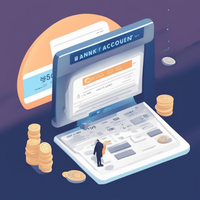Banking Technology

Banking technology is the application of advanced technological solutions in the banking and financial services industry. It encompasses a wide range of tools, software, systems, and platforms that help banks streamline their operations, improve customer experience, enhance security measures, and optimize processes.
Evolution of Banking Technology
Over the past few decades, banking technology has undergone significant advancements. Initially, traditional banking was heavily reliant on manual processes and paper-based transactions. However, with the advent of computers and digitalization, banks started adopting technologies to automate various tasks.
In recent years, there has been a rapid growth in financial technology (Fintech) companies offering innovative solutions. Fintech firms leverage emerging technologies such as artificial intelligence (AI), blockchain, cloud computing, big data analytics, mobile applications (apps), and internet of things (IoT) to disrupt traditional banking models.
Key Areas of Banking Technology
Digital Banking: Digital banking refers to online or web-based banking services that allow customers to perform transactions electronically through internet-enabled devices such as smartphones or computers. It includes services like account access & management, fund transfers/payments, loan applications/processing/disbursements/collections via online portals/mobile apps.
Mobile Banking: Mobile banking allows users to access bank accounts and conduct transactions using mobile devices like smartphones or tablets. This form of banking provides convenience by enabling customers to perform various tasks on-the-go seamlessly.
ATMs & Self-service Kiosks: Automated Teller Machines (ATMs) are electronic devices widely used by customers for cash withdrawals/deposits 24/7 without needing a physical branch's assistance. Additionally self-service kiosks offer various functionalities like utility bill payments or ticket purchases at public places which reduces human intervention while being cost effective for the banks.
Payment Systems: Payment systems encompass different methods facilitating secure transaction processing between parties involved in buying/selling goods/services. E.g., Electronic Funds Transfer (EFT), Real-Time Gross Settlement (RTGS), Automated Clearing House (ACH), mobile payments, contactless payments, and digital wallets like Apple Pay or Google Wallet.
Data Analytics: Banks leverage big data analytics to gain insights into customer behavior, identify patterns/trends, personalize offerings & recommendations, manage risks/compliance/financial crimes/fraud detection effectively. By analyzing massive volumes of structured/unstructured data efficiently banks can make informed decisions.
Cybersecurity: As banking increasingly relies on technology, ensuring robust cybersecurity measures is crucial to protect customer data, prevent unauthorized access/theft/hacks/fraud incidents that may lead to financial losses/identity theft risks. Technologies such as encryption protocols, firewalls, intrusion detection systems are used to strengthen security frameworks.
Core Banking Systems: Core banking systems serve as the backbone of banking operations running various software applications needed for transaction processing/account management/customer relationship management functions across branches/departments seamlessly.
Blockchain Technology: Blockchain is a distributed ledger system where transactions are securely recorded in a transparent and immutable manner without requiring intermediaries like traditional banks/enabling instant settlements with lower costs/higher efficiency. This technology offers potential applications in areas such as cross-border transfers/payment remittances or trade finance settlement.
Benefits of Banking Technology
- Enhanced Customer Experience: With digital channels/mobile apps accessible 24/7 allowing customers to perform transactions anytime from anywhere.
- Improved Efficiency: Automation and digitization optimize processes reducing manual errors while accelerating service delivery.
- Cost Savings: Online transactions/self-service options eliminate the need for physical infrastructure/personnel at all times leading to cost savings.
- Data-driven Decision Making: Advanced analytics enables banks to analyze large datasets extracting meaningful insights for informed decision-making.
- Increased Security Measures: Use of sophisticated technological capabilities mitigates security threats/cyber attacks assuring secure financial transactions.
- Expansion of Financial Services: Banking technology enables easier access to financial services for unbanked/underbanked populations by leveraging mobile/digital platforms.
Challenges and Future Trends
Despite the numerous benefits, banking technology faces several challenges. These include cybersecurity threats, data privacy concerns, technological infrastructure requirements, regulatory compliance issues, and the need for robust customer support systems.
In terms of future trends, there is a growing focus on AI-driven solutions such as chatbots/virtual assistants to enhance customer service experiences. Additionally, open banking initiatives are gaining momentum worldwide, promoting collaboration between traditional banks and fintech firms to provide customers with broader choices and streamlined financial services.
Overall, banking technology plays a pivotal role in shaping modern banking industry dynamics. With continuous advancements driven by innovation and evolving customer expectations, it will redefine how banks operate in the future while providing enhanced convenience and security for both customers and institutions alike.
Sponsored
Sponsored
Sponsored
Explore More:

Market Risk
Risk management in banking is a critical aspect of the banking industry. Managing...

Credit Risk
Risk management in banking is a critical aspect of the banking industry. Managing...

Risk Management in Banking
Risk management in banking is a critical aspect of the banking industry. Managing...

Glass-Steagall Act
The Glass-Steagall Act, also known as the Banking Act of 1933, was an...

Dodd-Frank Act
The Dodd-Frank Act, officially known as the Dodd-Frank Wall Street Reform and Consumer...

Basel Accords
Banking regulations refer to the laws, rules, and guidelines imposed by regulatory authorities...

Banking Regulations
Banking regulations refer to the laws, rules, and guidelines imposed by regulatory authorities...

Cash Flow Statement
The cash flow statement is an important financial statement for banks as it...

Income Statement
The income statement is an essential component of a bank's financial statements. It...

Balance Sheet
The balance sheet is one of the most important financial statements used by...

Bank Financial Statements
Bank financial statements provide a comprehensive overview of a bank's financial performance and...

Online and Mobile Banking
In today's rapidly evolving technology landscape, the banking industry has undergone a significant...

Credit Cards
Credit cards are one of the most prominent banking products offered by financial...

Understanding Different Types of Bank Loans: Features and Benefits for Personal and Business Financing
Loans are a core offering of banking institutions, providing individuals and businesses with...

Checking Accounts
A checking account is one of the most common banking products used by...

Saving Accounts
Introduction In the world of banking, saving accounts are one of the most...